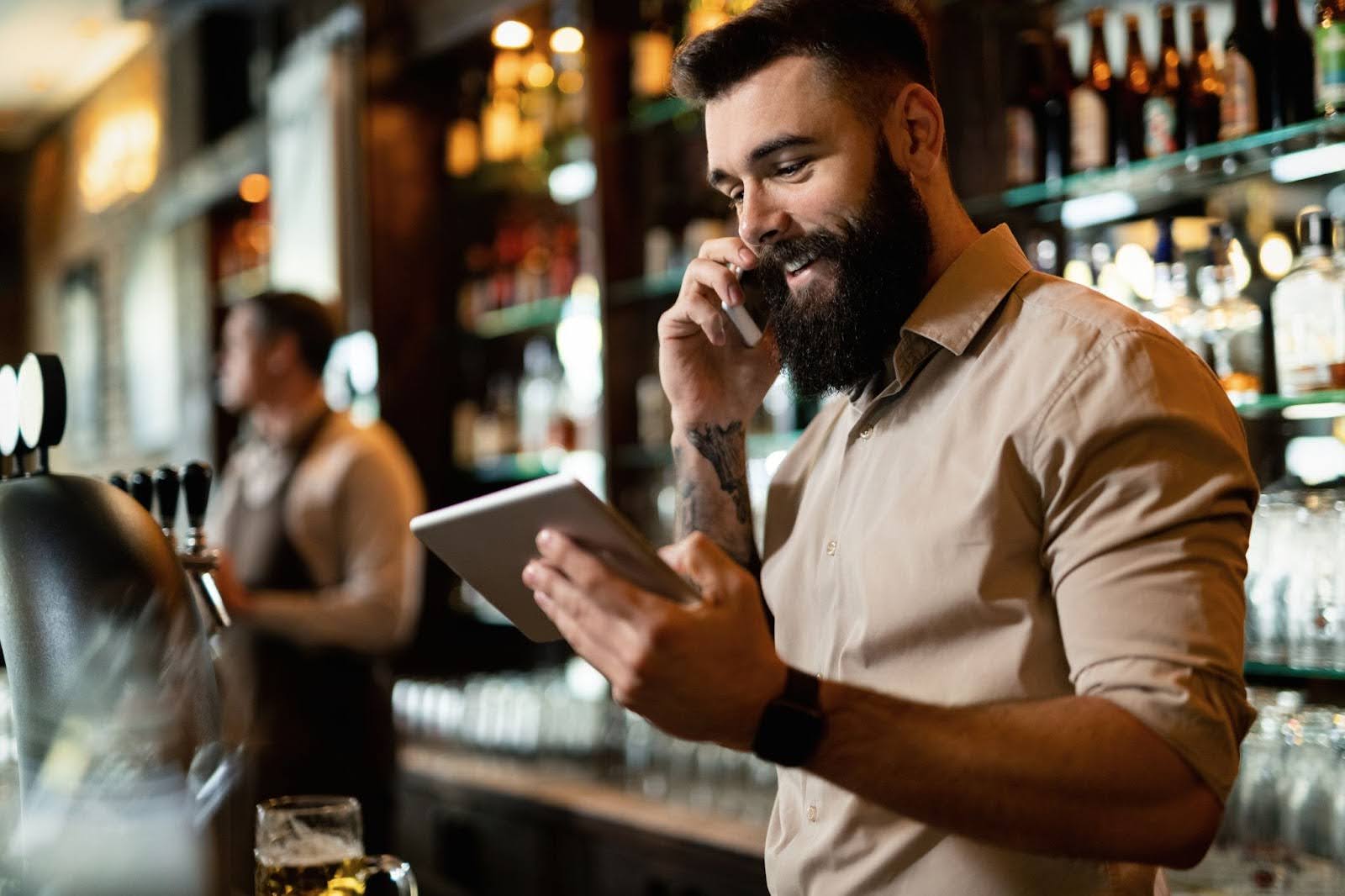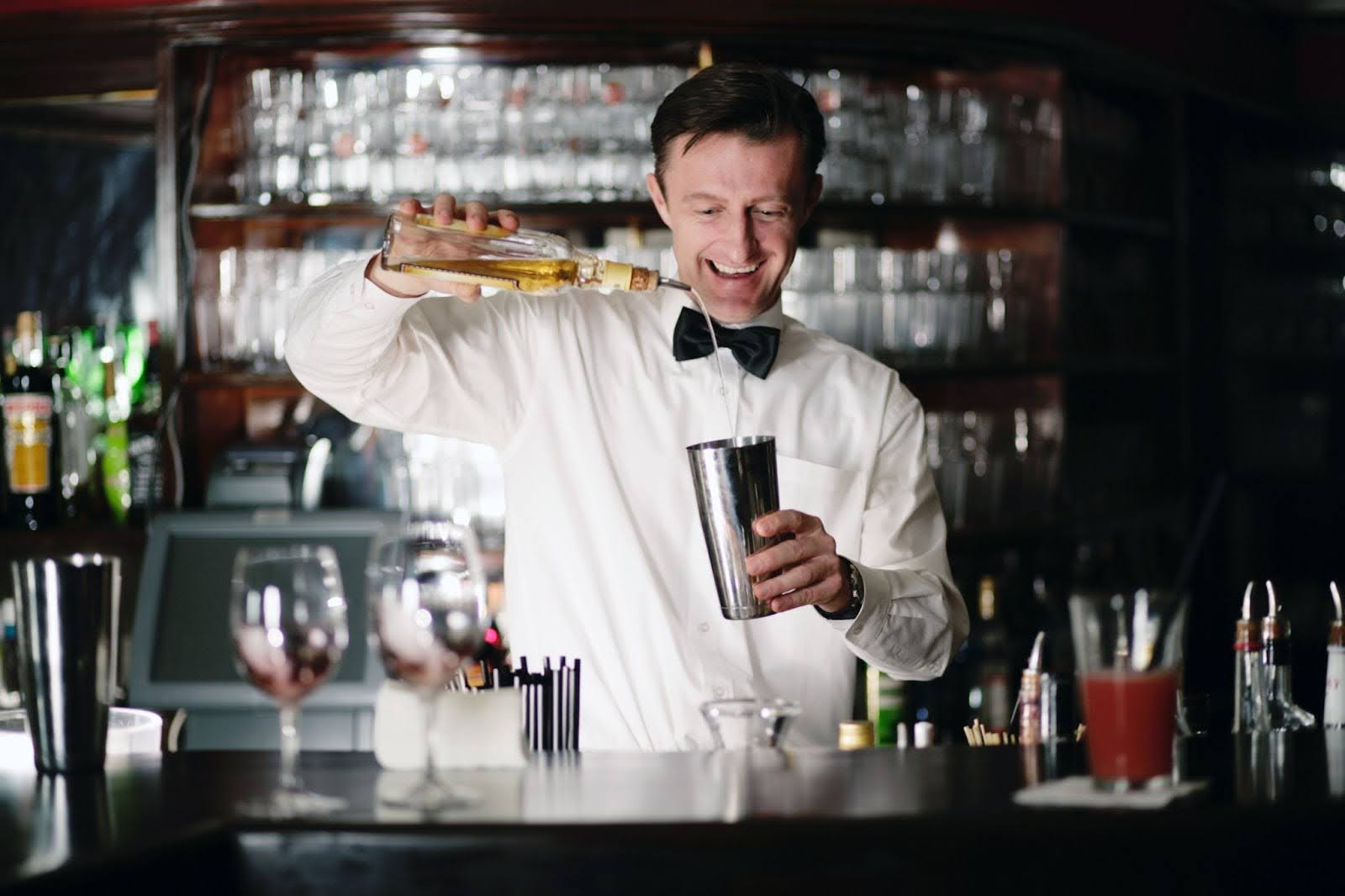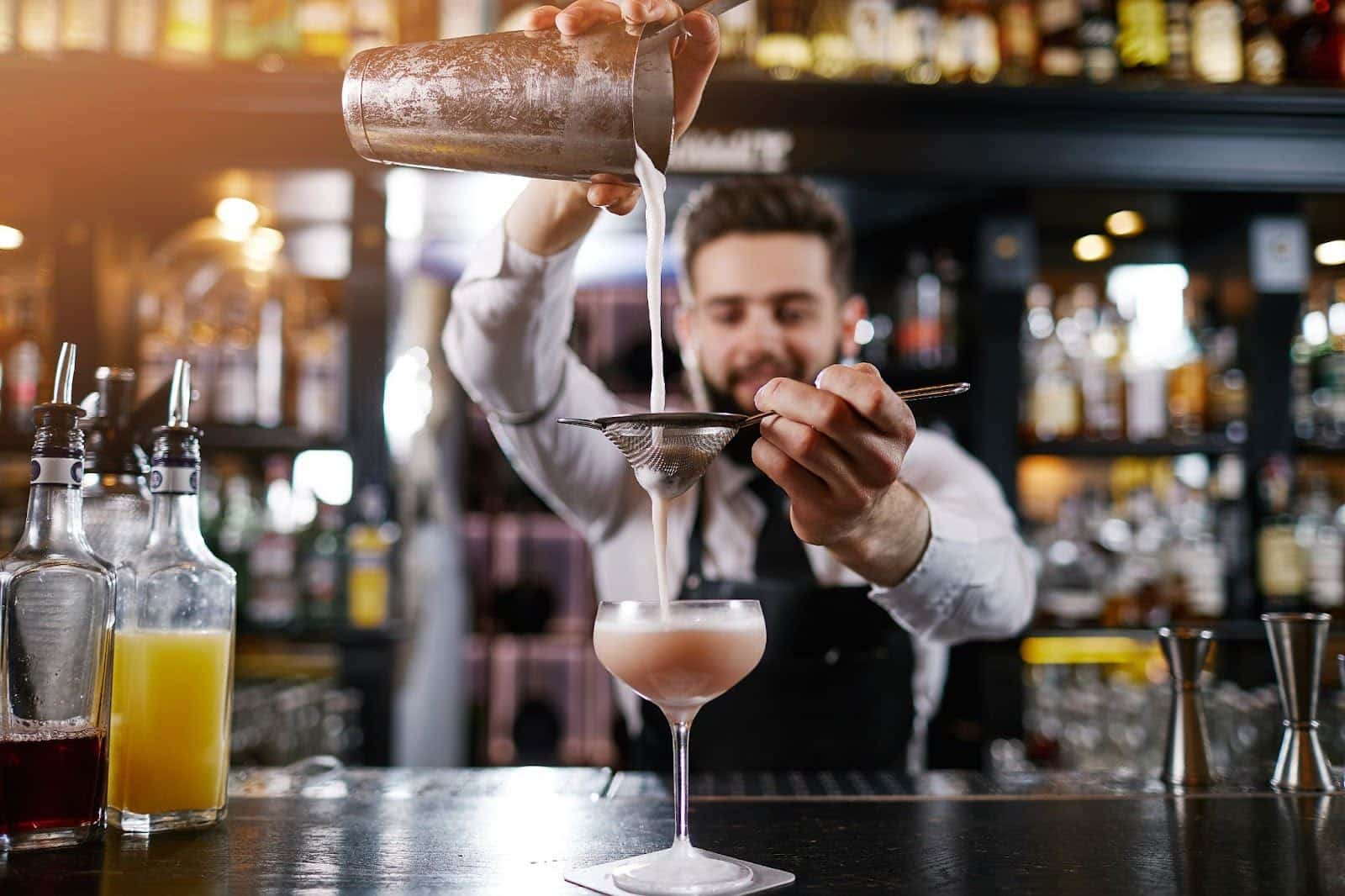The hospitality industry in Florida is undoubtedly thriving, considering it is one of the state’s largest sectors. With millions of tourists flocking to cities like Orlando, Miami, and Tampa each year, the sunshine, beaches, and endless entertainment options make it a top destination for both visitors and hospitality careers.
All of this positively contributes to employment, with businesses seeking more people, especially bartenders.
Entering the hospitality industry offers multiple benefits, including high earnings, flexible hours, and an opportunity for growth. If that’s what you are looking for, keep reading to find out how to become a bartender in Florida.
Quick Answer
- Florida does not mandate a bartending license, but most employers strongly prefer certified candidates who’ve completed alcohol server training.
- To get certified, you should enroll in a Florida Responsible Vendor Program (RVP) of a trusted training provider like ServeSmart.
- You can finish the training online in just 2-3 hours online, and ServeSmart’s course costs as little as $9.99.
- Certification boosts your hiring potential, ensures legal compliance, and prepares you to handle real-world challenges behind the bar with confidence.
Requirements for Becoming a Bartender in Florida
As a bartender, you’re likely to work in a restaurant, bar, casino, or other liquor-serving establishment. While most places may only require experience, those who are a part of the Responsible Vendors Act will require an alcohol server certification.
The Florida Responsible Vendors Act is a voluntary state program designed to encourage alcohol vendors to train their employees in responsible alcohol service.
Although not mandated by the state, some employers will require you to obtain a Florida Alcohol Server certification.
What Is a Florida Alcohol Server Certification?
To obtain the certification, employees who handle alcohol need to take the Florida Responsible Vendor Program (RVP). It’s training that teaches how to responsibly serve and sell alcohol to customers and make the workplace safer for everyone.
Do You Need a License to Bartend in Florida?
Florida doesn’t require bartenders to have a license – however, the state strongly encourages them to obtain it. Taking the Responsible Alcohol Vendor course ensures you know how to serve alcohol responsibly and help protect businesses from legal liabilities. It’s a win-win for both you and your employer.
Why Do You Need a License to Bartend in Florida?
Most respectable vendors in Florida want to ensure their customers feel safe and employees are familiar with laws and can help reduce legal risks – and that’s exactly what Florida Responsible Vendor training does!
For employers, the benefits of having RVP-certified bartenders are clear, and they include:
- Reduced liability: If the business is enrolled in the RVP and staff are properly trained, the employer may be protected from certain legal penalties in the event of an alcohol-related incident (like serving a minor or an intoxicated guest).
- Compliance and insurance: Participating can help the business maintain compliance with insurance and state regulations, potentially lowering premiums and avoiding costly fines.
- Professionalism: RVP-certified bartenders and servers can raise the business’s reputation as the staff is trained to mitigate challenging situations with care and confidence.
As for you, a bartender or server, the benefits are more career-focused:
- Improved hiring potential: As a trained and licensed bartender, you will be a more attractive candidate who prioritizes safety and compliance.
- Legal awareness: Understanding Florida alcohol laws, employers would be happy to have a bartender who knows how to spot a fake ID, handle intoxicated customers, and avoid liability.
- Job confidence: With proper training, you’ll feel more prepared to manage difficult situations and protect both yourself and your workplace.
- Career advancement: Responsible service skills are often required for management roles and help build a strong reputation in the hospitality field.
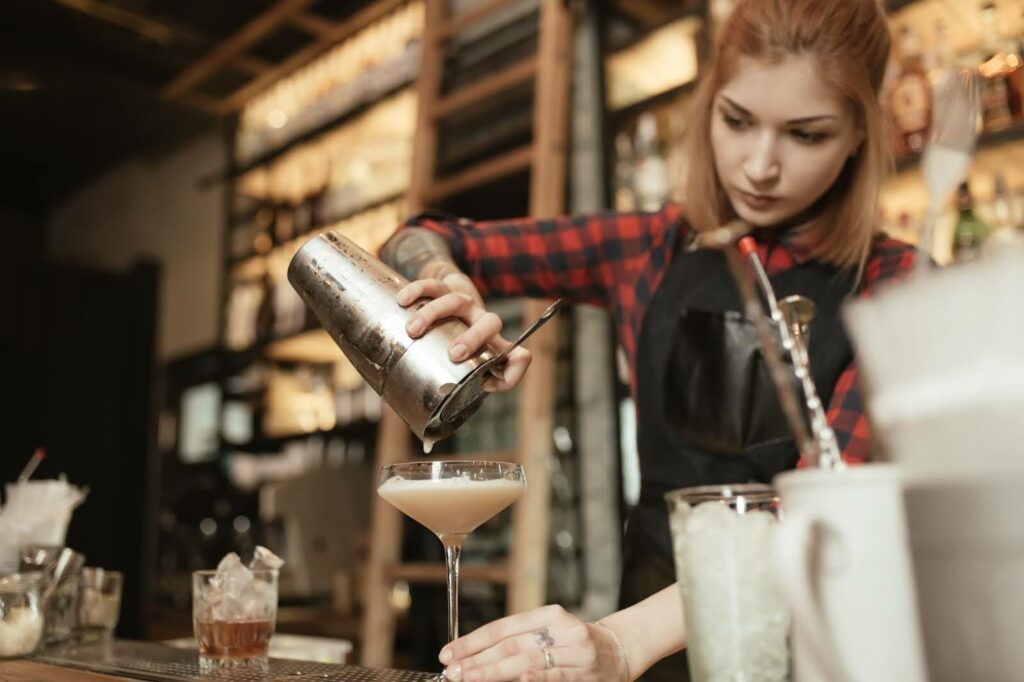
How Old Do You Have to Be to Serve Alcohol in Florida?
You must be at least 18 years of age to serve alcohol in Florida – and we mean to serve without pouring it. This also applies to employees who work in a bar or other on-premise establishments.
To transport alcohol, including closed containers, to customers, you must be 21 or older.
In order to avoid legal problems that could jeopardize your career, make sure you are aware of what responsibilities you can perform at work in compliance with Florida alcohol laws and regulations.
When Is Bartending Certification Required?
Alcohol server certification is often expected by employers to help protect the business from liabilities, but also because it can be essential for certain job opportunities. Here is why:
- Employer policies: While the State of Florida doesn’t mandate alcohol server certification, many bars, restaurants, and other hospitality businesses require staff to complete the training as a condition of employment.
- Insurance requirements: Some liability insurance providers also require trained staff as part of their coverage agreement.
- Responsible Vendors Act requirement: If an establishment is enrolled in Florida’s RVP, employees must complete a state-approved course, too.
How to Become a Licensed Bartender in Florida? Step-by-Step Certification Guide
A Florida alcohol server certificate is almost always required by employers, so what’s the fastest way to get it? Below, we break down the whole process step-by-step to help you become a certified and job-ready bartender:
Step 1: Understand Florida’s Bartending and Alcohol Laws
We’ve repeated a few times that getting Florida’s certificate for bartenders is optional yet highly recommended. Nevertheless, the rules may change at the time of reading this guide, so make sure to check for any updates or changes in the alcohol regulations.
Step 2: Choose the Right Type of Training Course
There are plenty of training providers in Florida, but the ultimate choice comes down to online vs. in-person training. Both formats result in granting you the license, yet the formats’ processes and durations differ significantly.
Online training is often the fastest and most affordable way to get certification in Florida. The only thing to keep in mind is to choose an accredited provider – like ServeSmart.
We are a state-recognized training provider that has already helped numerous Americans start their bartending career in Florida.
Why Choose ServeSmart?
- 100% online and mobile-friendly
- Instant proof of completion and downloadable certificate
- Self-paced learning—complete it in one sitting or on your schedule
- Built-in quizzes and final assessment to boost retention
- Trusted by Florida hospitality employers and aligned with RVP standards
Step 3: Evaluate the Course’s Offer
When choosing between in-person and online training courses, there are a few key factors that can influence your decision:
- Duration of the course
In-person courses typically last about 4 hours. Each session is held in a training establishment to which you must commute.
In comparison, online courses take no more than 2-3 hours and are typically self-paced. This means you can complete the course all at once or divide your individual training session whenever you are available.
- Cost comparison
Consider the rent and the cost of trainers, in-person courses may charge anywhere between $30 to $100+. Adding the expense spent on fuel and occasional snacks on the way to a training facility, the final price, including everything, can be quite high for some.
Online courses are significantly cheaper since you’re only paying for access to a platform. At ServeSmart, for example, you can purchase the course for as low as $9.99 and access classes anytime and anywhere.
- Extra fees
Traditional courses may have extra fees that cover the cost of materials. However, the online training format lets you download digital guides and videos that are already included in the price.
- Final Certification
While in-person courses might need to print and send your certification by mail, ServeSmart lets you download the proof of a successfully finished course instantly.
Step 4: Pass the Final Assessment
Reading through the materials may not be enough to successfully pass the final exam. That’s why it’s important to ask the provider of available interactive practice modules to let you strengthen your knowledge of Florida alcohol laws.
A credible training provider, like ServeSmart, should include:
- Practical quizzes after each module
- A final multiple-choice exam to confirm your understanding
- A possibility to contact the trainer in case of any questions
Step 5: Provide Proof of Certification
Once certified, your next steps are:
- Show your certificate to your employer as part of the onboarding process
- Provide documentation to businesses that participate in the Responsible Vendor Program
- Keep a digital and printed copy of your license on hand when looking for a job
Step 6: Stay Certified and Continue Education
Your Florida bartending license is valid 2 years – hence, make sure to stay compliant and renew it before the expiration date.
After getting your license, don’t stop there! Consider taking a course in mixology and customer service to boost your resume and career prospects.
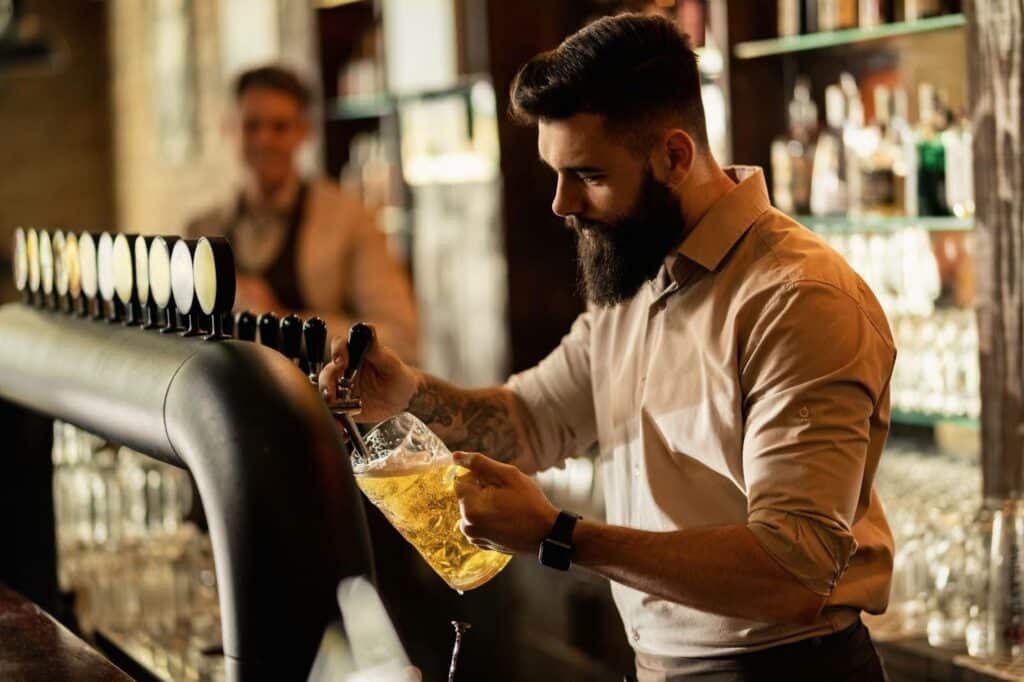
Tips for Landing Your First Bartending Job in Florida
Breaking into Florida’s bustling hospitality industry as a new bartender is totally possible, with the right preparation and a smart approach. From popular beach towns to tourist-packed theme parks, opportunities are everywhere. Here’s how to stand out and get hired fast:
Leverage Florida-Specific Job Search Strategies
Florida’s hospitality industry thrives year-round, but peak hiring seasons are during spring break, summer, and the winter holidays. Take advantage of this cycle by applying early and frequently.
Where to search:
- Hospitality job boards like Poached Jobs, HCareers, and Culinary Agents
- A general platform like Indeed
- In-person visits to local bars in tourist-heavy areas like Orlando, Miami, Tampa, and Key West
💡 Pro tip: Apply to high-volume venues (hotels, resorts, theme parks, and cruise ports), which tend to train new hires and promote from within.
Highlight Certification on Your Resume
Even though Florida doesn’t require a bartending license, showing you’ve completed Responsible Alcohol Server Training tells employers you’re serious, responsible, and job-ready.
Resume tips:
- Add a “Certifications” section near the top
- Mention programs by name: e.g., “Florida Responsible Vendor Program Training – ServeSmart (Completed 2025)”
- Emphasize compliance knowledge, customer service, and safety awareness
Network Locally
The Florida bartending scene is tight-knit. Networking can land you a job faster than online applications alone.
Try these:
- Visit local bars and introduce yourself to bartenders or managers (during slow hours)
- Attend hospitality job fairs or industry mixers
- Join local Facebook Groups or Reddit threads for bartenders in your city
- Ask friends or coworkers already in the industry for referrals
Dress for the Venue
When applying in person, follow a dress code that will earn you a good first impression. For example, when going to beachfront bars, go for a neat-casual look with clean shorts or pants matched with a collared shirt.
On the other hand, consider picking a business casual outfit when applying for a job in a restaurant.
Stay Proactive and Keep Learning
Finding the right job takes patience and persistence. But even after landing your first job as a bartender, you should continue practicing by learning new recipes, watching mixology tutorials, and experimenting with new flavors.

The Final Note
If you’re aiming to become a bartender in Florida, the path is more accessible than you might think. While the state doesn’t require a bartending license by law, completing a responsible alcohol server training course—especially through the Florida Responsible Vendor Program (RVP)—is a smart move.
It shows employers that you’re trained, professional, and ready to handle the responsibilities of alcohol service. Whether you’re just starting out or looking to boost your chances of getting hired at top venues across Miami, Orlando, Tampa, or the Florida Keys, certification can make a big difference.
With ServeSmart, you can complete your training entirely online, on your schedule, and from any device. The course is fast, affordable, and widely trusted by Florida employers.
Preguntas frecuentes
How long does the Florida bartender certification take?
The online certification course typically takes 2 to 3 hours to complete. It’s self-paced, so you can finish it in one sitting or spread it out based on your schedule.
How much does it cost to become a bartender in Florida?
Responsible alcohol server training through providers like ServeSmart costs as little as $9.99, with no extra or hidden fees.
Is the ServeSmart certification transferable to other states or regions?
ServeSmart’s training is state-specific and aligned with Florida laws. While it may show employers you’ve been trained, you’ll likely need to take a separate, state-approved course if you move to a different state with different alcohol service laws. See what other state-recognized courses we offer.
What’s the difference between bartending and other alcohol service roles?
Bartenders mix, serve, and sometimes create alcoholic drinks. Other roles, like servers or barbacks, may deliver drinks or support bar operations, but usually don’t prepare the beverages themselves.
Bartenders typically need stronger knowledge of recipes, customer interaction, and alcohol safety.

